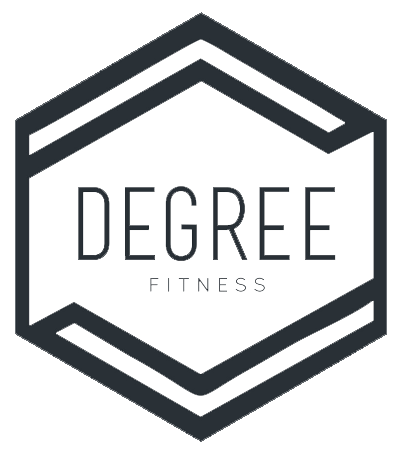What Is Holding You Back? Part 2!
September 26, 2020
Written By: Coach MJ What is exercise? Who is it for? What is holding you back?
When you think of going to the gym, what is the first picture that comes to your mind?
Strong, fit bodies working out, doing movements with heavy weights. Why? Because that is what the majority of advertisements show us. Not very encouraging if you don’t fit the mold or age demographic, add in the factor of injury, age, health issues or anything else that may be going on in your life and it is easy to avoid.
The definition of exercise is doing activities that make your body strong and healthy. How, is up to your individual goals, abilities and finding something that you like and works for you.
When we are working with a limited range of motion or chronic pain we often start to believe that the gym is just not the place for us to go to. We can’t do the exercises like everyone else is one excuse, or someone told us we shouldn’t be doing that type of thing. Maybe we have become so used to the pain that we have actually limited ourselves even more by letting our muscles get weaker. Often our confidence in our abilities to move without pain or restriction have limited our enjoyment of living our life to the fullest.
No two people are exactly alike or move the same way! So why do we think that an exercise program should be the same for everyone?
Every athlete moves in a slightly different way that works for their body type. The same goes for anyone with limitations, at Degree we find a way that works for you to move safely and efficiently to build stronger muscles to help reduce pain levels. That doesn’t mean pain will be gone but if we can control the levels and find ways to move better our quality of life should increase.
This is where a Coach comes in place! Your Coach will work with you to find the ways that work best for you.
If you are working with a chiropractor or physical therapist, allowing your Coach to communicate with them gives you a team that is looking out for you in the best possible way. A Coach also keeps you motivated to keep going especially on those days it is harder to get going.
What is holding you back? Take a chance and check out Degree Fitness has to offer! It starts with a Free No Sweat Intro!
This is a time to talk and get to know a little about each other and what our goals are. There are different options available to check out and find the best fit for you! Our goal is to help you move the best you can at the level you are at! Together we can build a stronger and healthier you!
If you are interested in Personal Training and/or getting started at Degree, email info@degreefitnessseaforth.com
or click here
to book your Free No Sweat Intro today!

Written By: Mairead, Registered Dietitian Have you heard of the "Complexity Bias"? This is the idea that the more complicated something is, the more effective and accurate we perceive it to be. In terms of exercise, this could look like very complicated plans, complex movements, and fancy equipment. When it comes to nutrition, we often see this look like overly complicated food rules and diet plans. All over the internet, you can find lists of foods to eat or avoid, specific times to eat, combinations of foods you need to eat together... the variations of complicated rules can go on and on. Just because something looks fancy on paper, that doesn't mean it's actually going to be effective for your goals, or even that it's technically true! However, we are often drawn to these more complicated diet plans and rules. They can make us feel good, like we've got it "right", and give us a sense of control. If we're eating our prescribed 137.5 grams of protein, we've got to be on the right track, right? Diet plans that are too complicated can actually make it harder to reach our goals. The more complicated something is, the harder it is to keep doing, day after day, especially when things are busy or you're even slightly out of routine. While nutrition is highly complex, the important parts for most people actually boil down to the basics, which are fairly simple and not hyper-specific. Eat lots of vegetables and fruit, and aim for variety with this. Eat some sort of protein at most meals and snacks, and aim for some variety in your protein sources. Include healthy fats in your diet daily. Again, aim for some variety. Eat on a fairly consistent schedule. Come to your meals and snacks hungry enough to eat and enjoy your food, but not so ravenous that you won't even taste your food. Drink enough water. Eat pretty well most of the time, and don't sweat the occasional treat. For most normal healthy people, these habits will improve your diet quality and nutritional intake way more than any complicated rules will. Remember, for nutrition habits to work, you need to able to maintain them. And if you're going to maintain them, they can't be too complicated. Looking for more personalized nutrition help? Let's chat! Our Dietitian is now scheduling for Nutrition Programs again! Email mairead@degreefitnessseaforth.com for more info, or click HERE to book your FREE Bite-Sized Nutrition Chat!

Written By: Mairead, Registered Dietitian February is Heart Health Month! So what better time to focus on habits that can help improve our cardiovascular (or heart) health! Cardiovascular disease includes high blood pressure, high cholesterol, and coronary artery disease. All of these factors can increase your risk of having a heart attack or stroke. While some of your risk is genetic, many factors can be improved with lifestyle habits - which are in our control! Check out these ways you can improve your heart health this Heart Health Month! Know your risk level Many people may be walking around with high cholesterol or high blood pressure and not know it. If we don't know something is a problem, we can't fix it! Make sure to complete any tests your doctor recommends in a timely manner, and follow up afterwards. If you do find out there's a problem, it's much easier to start making changes when something is a smaller potential risk factor than after something serious has happened. Not sure where you're at? Ask your doctor if this is something you should monitor! Get enough exercise We don't have a magic pill that fixes everything, but exercise does come close! For heart health, exercise will help decrease your blood pressure and promote healthy cholesterol levels. The recommendation for most healthy Canadian adults is to aim for 150 minutes of "moderate to vigorous" exercise a week - this means your heart rate is up and you are breathing at least a bit harder than at rest. If you feel you fall short of that goal, try slowly increasing by 5-10 minutes a week as your body allows. Any type of exercise that gets your heart rate up counts! Watch your salt intake While we know we do need some salt or sodium in our diet, many of us eat too much salt. Much of this comes from processed foods or take out - it's not just about whether you add salt during cooking and at the table. For those who are at risk for high blood pressure, a high sodium intake can increase that risk, and decreasing your salt intake can help promote more normal blood pressure. Staying between 1800mg and 2300mg of sodium daily will make sure your body is getting what it needs without overdoing it. Try checking your labels to see if you're taking in more salt than you realize. Use the "percent daily value" on the right-hand side of the nutrition facts table - remember, 5% is a little bit, 15% is a lot! Increase your fibre intake Fibre does many great things for our body - including helping to improve your cholesterol levels, or maintain them in a healthy range. The total recommended amount of fibre daily is 20-25g for women and 30-38g for men - that's a lot!! Sources of fibre include vegetables, fruit, whole grains and whole grain products, nuts and seeds, and legumes. If you're choosing foods with a nutrition label, use the "percent daily value" to choose higher-fibre options. Remember to make changes in your fibre slowly and make sure you're properly hydrated to avoid any bowel upset. Remember, health isn't all or nothing! If you're ready to improve your heart health, pick one habit to focus on and figure out how you can implement in your daily life consistently! Looking for more personalized nutrition advice? Let's chat! Email mairead@degreefitnessseaforth.com for more information about our Nutrition Programs, or click HERE !

Written By: Mairead, Registered Dietitian There's just so much information out there about carbs. Are they good? Are they Bad? What about complex ones? When should you eat them? Will you lose weight if you don't eat them? With contradictory answers, it can be confusing and hard to know what's actually important and will help you improve your health and fitness! "Carbs" is short for carbohydrates, one of our main macronutrients. Carbs are the brain and body's preferred main source of fuel and energy. We can make that energy last longer by choosing carb options that are higher in fibre, and pairing them with protein and fat. These components help slow the break down of the carbs, making that energy last over a longer period of time, rather than leaving us feeling hungry and tired again quickly. Carbs are often referred to as "simple" or "complex". Simple carbs are foods like white bread, and are more processed and lower in fibre. Complex carbs are foods like whole grains, which are generally closer to being whole foods, are less processed, and are higher in fibre. Focusing on swapping simple carbs for complex options can help improve our heart and bowel health, better manage blood sugars, and promote more consistent energy levels throughout the day. Now, should you follow a low carb diet? It's totally up to you! For people with concerns about their blood sugars, it can be worth learning more about carbohydrates, how much are in certain foods, and how to time them consistently. For most normal healthy people, there are healthy ways to eat any amount of carbohydrates, as long we're including a variety of foods and not neglecting our other macronutrients (fat and protein). Low carb diets can help with weight loss for people who enjoy eating in that way over a long period of time. Like any diet changes, you need to be able to maintain it for the long-term. A low carb diet can create a calorie deficit (where you're taking in less calories than you are consuming), especially when carb foods are replaced with lower calorie foods (like vegetables) or those that might create more of a feeling of fullness (like proteins). Some people also see some quick initial weight loss when following a low carb diet - this is often water weight rather than true body mass loss, because carbs cause the body to hang on to a little bit of extra fluid. This initial loss will quickly return if you go back to eating your normal amount of carbs. Like anything in nutrition, there's a lot of variation in what can make up a healthy diet! When it comes to carbs, aim for higher fibre and more complex options to improve your overall health. Looking for more personalized nutrition advice? Let's chat! Email mairead@degreefitnessseaforth.com or click HERE for more info about our Nutrition Programs!
